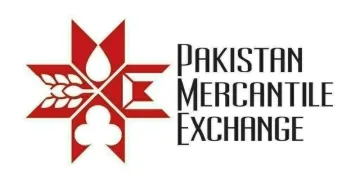© Reuters. FILE PHOTO: The flags of the United States and the United Kingdom stand after bi-lateral photo between U.S. Secretary of State Rex Tillerson and British Foreign Minister Boris Johnson was cancelled at the State Department in Washington, U.S. March 22, 201
By Andrea Shalal
BALTIMORE, Md. (Reuters) – U.S. and British officials kicked off two days of meetings on Monday to strengthen trade ties, underscoring the importance of transatlantic cooperation at a time when Western allies are ratcheting up pressure on Russia over its war in Ukraine and China for failing to condemn it.
The talks in Baltimore mark a broad effort to take stock of the $260 billion bilateral trade relationship, while specific irritants will be set aside and dealt with separately.
U.S. Trade Representative Katherine Tai said the two allies had resolved disputes over aircraft subsidies and digital services tax, and were now working together closely to punish Russian President Vladimir Putin for his invasion of Ukraine.
“In the battle between democracy and autocracy, democracies are rising to the moment and the world is clearly choosing the side of peace and security, so it’s never been more important for us to work to strengthen our economic ties with our closest allies, like the United Kingdom,” Tai told a plenary attended by dozens of U.S. and British executives and trade officials.
Tai said U.S. and British officials would work to identify mutual trade priorities and chart a path to promote “innovation and inclusive economic growth for citizens on both sides of the Atlantic.”
Key U.S. priorities include collaboration on expanding protection of labor rights and the environment, decarbonizing their economies, promoting racial and gender equity, building more resilient supply chains and tapping the “democratizing” benefits of the digital economy, U.S. officials said.
UK Trade Secretary Anne-Marie Trevelyan said Britain was seeking to “forge even closer bonds of trade and investment between us, because we do more business together than any other two countries in the world.”
The two sides are “making good progress” in separate talks on resolving a dispute over U.S. steel and aluminum tariffs that helped clear the way for this week’s broader talks, Trevelyan said.
Washington also remains concerned about UK food safety standards that prevent imports of U.S. chlorine-treated chicken, but will address that issue separately, a second official said.
U.S. and UK officials say this week’s meetings do not mark a resumption of formal free trade talks held under the former Trump administration and suspended once President Joe Biden took office.
Such agreements “are just one tool at our disposal and … we really do need to be creative and think outside the box when it comes to trade policy,” a senior U.S. trade official said. “That’s what this dialogue will help us unpack.”
The two sides will meet again later this spring in Britain, but the location has not been finalized, officials said.
Close coordination on economic sanctions, export controls and trade measures imposed on Russia have brought Europe and the United States closer together as they jointly work to counter challenges posed by non-market economies like China, the U.S. official said.
Marjorie Chorlins, senior vice president at the U.S. Chamber of Commerce, said it was disappointing that there were no plans to resume the talks on a free trade agreement anytime soon.
“We should have been able to restart the U.S.-UK negotiations. We were five rounds in and a lot of great work was done.”
Source: Investing.com



























